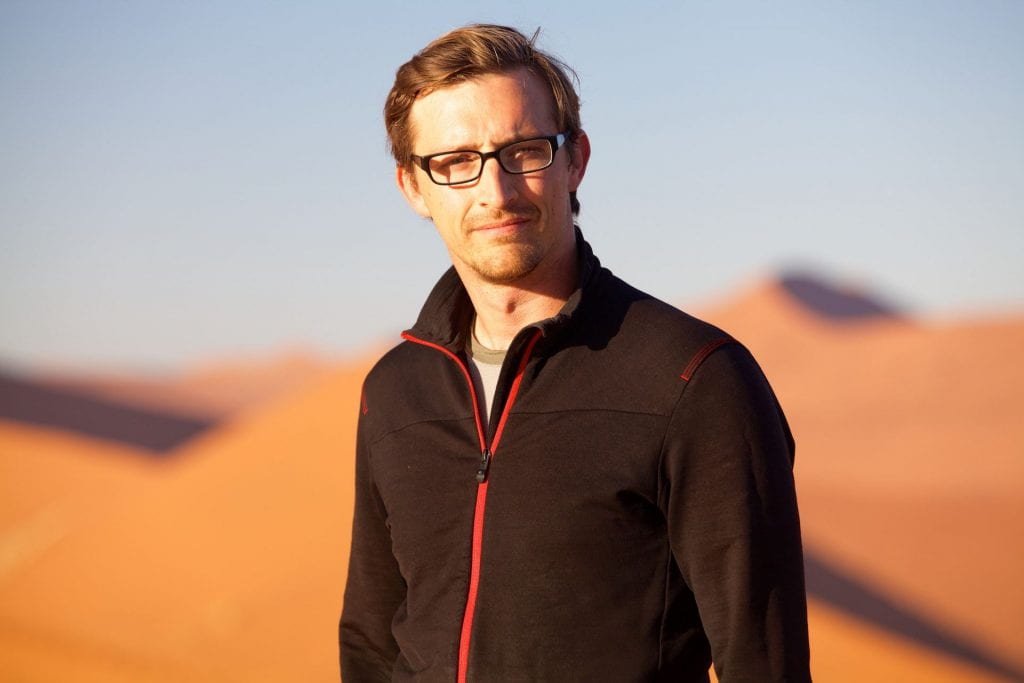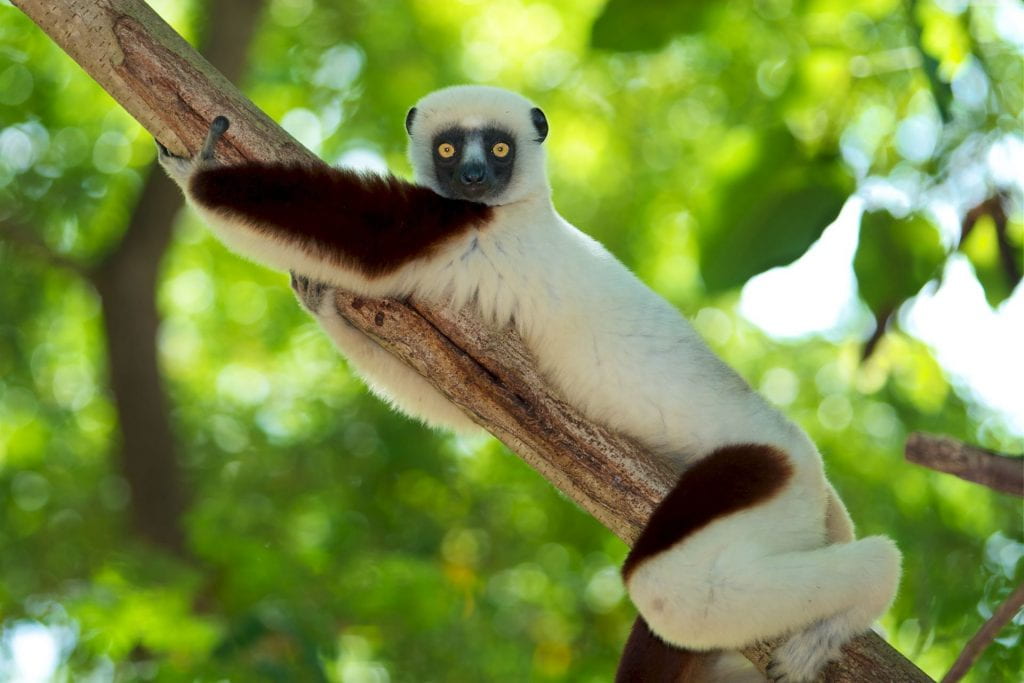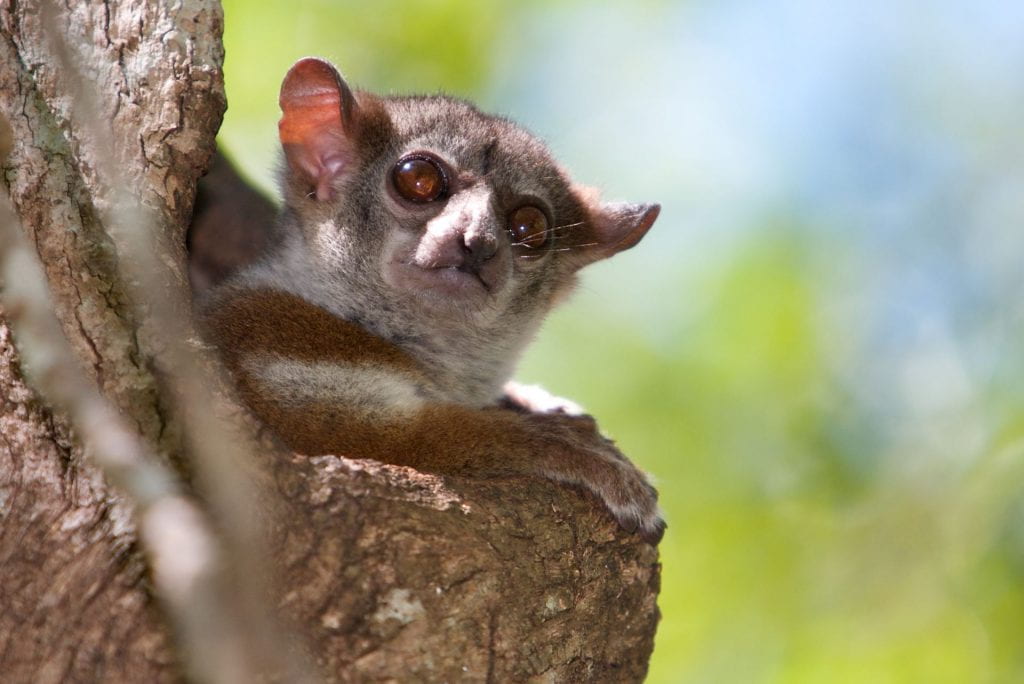Dr. Travis Steffens

Studying lemurs is great – it’s fun, it’s interesting – but if they are being impacted by people and you don’t understand why people are doing what they are, you’re missing half of the problem.
-Dr. Steffens
Most people’s only exposure to lemurs is through the movie Madagascar, which doesn’t give an accurate representation of the endangerment they are facing and the way that their environments and interactions with humans contribute to this problem.
The movie depicts Madagascar’s lemur population thriving while living in total isolation from humans and most other animals. Yes, this is a children’s movie, but it couldn’t be further from the truth. Many lemur species, particularly the well-recognized ring-tailed lemur (King Julian, himself), are at a very high risk of extinction as their habitats are converted for agriculture and they are hunted as food. In fact, lemurs are the most endangered group of mammals in the world.
University of Guelph primatologist, Dr. Travis Steffens, is working to better understand the complexity of this problem. He initially went to Madagascar planning to only study how lemurs were impacted by habitat loss and fragmentation. However, he soon realized that studying this problem in isolation wouldn’t lead to a long-term conservation solution. He also noticed the country’s widespread poverty levels and how deforestation impacted both people and lemurs and developed the nonprofit, Planet Madagascar, to work to address these larger issues and their relationships to one another.
“Looking at this from the perspective of a shared environment brings it into the One Health realm,” says Steffens.
Steffens’ research does more than just incorporate the One Health (OH) approach – that is, a research approach that addresses the interconnections of human, animal, and environmental health – it embodies it. Though he didn’t recognize this immediately. He recently learned about OH when a colleague urged him to apply to a social science OH position at Guelph and he hasn’t looked back. He described the ways in which OH has enhanced his research, giving him a framework for applying his previous thoughts into a holistic approach.
“One Health is a multidisciplinary approach for multidisciplinary problems,” Steffens says.
Steffens didn’t initially plan to study so many things. His first dream was to become a monkey when he grew up, but once he realized that wasn’t possible, he figured studying them or other primates, such as lemurs, would be the next best thing. He travelled to Madagascar to work on a number of conservation projects and for his own PhD research project, studying the impact of human disturbance on lemurs. In 2015, he started Planet Madagascar aiming to work with local communities that live in connection to lemurs. His goal was to help create sustainable forest communities that worked together to help protect lemurs.
At its core, Steffens work aims to understand how people impact lemur conservation and how lemur conservation impacts people.
For his next research project, he has partnered with the Centre for Public Health and Zoonoses, directed by Prof. Scott Weese (Department of Pathobiology), to noninvasively study disease transmission among humans, domestic animals, and lemurs. Microbiologists, biogeographers, veterinarians, and socio-cultural anthropologists must all be involved to fully comprehend these interactions and prevent harmful infections from being transmitted. Such collaboration is important to Steffens.
“Bridging connections across disciplines,” Steffens says, “will give us the ability to do something greater than we could have as individual researchers working alone.”
Steffens’ work is currently funded by start-up funds from the University of Guelph’s College of Social and Applied Human Sciences.
Learn more about Dr. Steffens and his work here http://www.planetmadagascar.org/
By Anna McMenemy
Share this article





